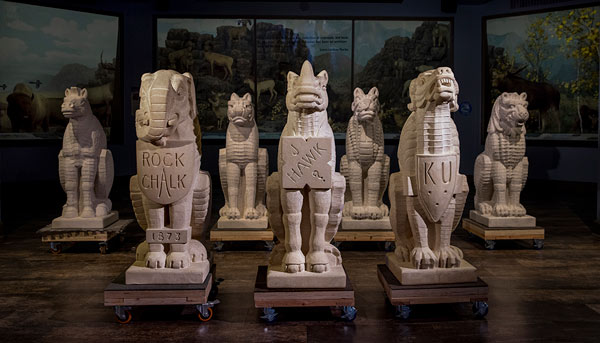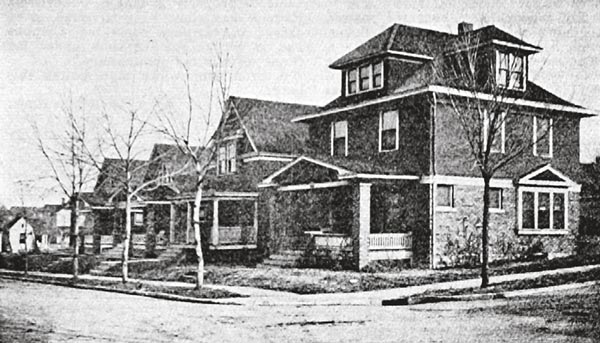Family histories chronicle tribulations, triumphs of immigrant experience
Dennis Garcia draws on storytelling skills honed as a trial lawyer, classroom teacher.
Retired attorney and Kansas native Dennis Garcia’s latest book tells the story of three generations of women in his family: Candelaria Garcia (his great-grandmother, born 1865 in Mexico), Rafaela Padilla (grandmother, born 1906 in El Paso, Texas) and Irene Rodriguez (mother, born 1920 in Dodge City). Each followed separate paths, Garcia writes in the introduction to Las Madres: Latinas in the Heartland Who Led Their Family to Success, but shared the same goal: “security, and freedom from want.”
In the lives of these three strong women, Garcia sees the broad outlines of an archetypal American story—the U.S. immigrant experience.
“If you ask Americans from every race and culture why their families came to the United States, regardless of the century, it’s pretty much the same story,” Garcia says. “They wanted to change their circumstances and make their lives better.”
By fleshing out the details of one family saga, Las Madres (the mothers, in English) helps fill in important gaps in that larger American story, believes Garcia, l’80.
“One unique thing about the book is that it’s about the Mexican American Latina experience in the Midwest,” Garcia notes. “A lot of literature and movies involve families in California and the Southwest, but very few I have come across talk about families in the Midwest—and those that do a lot of times focus on the men.”
Published by University Press of Kansas in November, Las Madres follows Garcia’s 2018 book, Marine, Public Servant, Kansan: The Life of Ernest Garcia, also published by UPK. That title, which won first place in the Latino International Book Awards for best biography, chronicles Garcia’s cousin, Ernest, s’74, g’75, g’77, a Marine Corps veteran whose long career included a stint as sergeant at arms in the U.S. Senate, where he escorted President Ronald Reagan to the podium to deliver the State of the Union address.

Several common threads connect the stories in Garcia’s two books: In both cases, migration from Mexico to the U.S. was instigated by a desire to escape poverty, high infant mortality and the threat of military impressment during the Mexican Revolution in the early 1900s. Pushed by a need to keep their families safe, migrants were also pulled by the lure of work offered by the Santa Fe Railroad, which recruited men in rural Mexican villages to do the difficult labor of building out America’s burgeoning rail system.
“Both families had their origins on haciendas doing ranch work, and during the revolution they were caught in the middle” of government and rebel armies looking for soldiers, Garcia says. “Both families chose to leave the hacienda system of life, which had existed for 300 years, to go to a new country, a new language and a new way of life. They brought with them what they could carry, and slowly but surely began to be settled and stable.”
For Candelaria and her husband, Ascencion Padilla, stability took the form of a gradual economic rise fueled by hard work, first in the border barrio of El Paso and eventually in the railyards near the Santa Fe tracks in Dodge City. Successive generations completed their education—often in segregated schools—and served their country. Garcia and Rodriguez men enlisted in the U.S. military from World War I through Vietnam.
“Both families did their patriotic duty and fought in the wars,” Garcia says, “and when they returned, the common thread was they had a desire to lift their status from second-class to first-class citizens, to get into the middle class.”

Dennis Garcia grew up in Garden City and lives now in Chula Vista, California. After earning his KU law degree, he practiced law for 30 years, mostly in Arizona. He worked in legal aid, served as a prosecutor and judge pro tem, did criminal defense work in his own firm, and represented the Pascua Yaqui Tribe. He also taught high school classes in government and law for 16 years.
His law and teaching experiences all proved helpful when he set out to put his family stories on the page.
“When you’re standing in front of a jury, you try to tell a convincing story, a good narrative for the jury to hear. And teaching was actually much harder than being a lawyer. But the combination of those experiences set me up to tell the history and story of the Mexican Americans in the Midwest, particularly those in Kansas and my family.”
The lesson he hopes to impart—to his own descendants and to general readers—is one of determination, faith, hard work and love of community and country.
“I hope people who face challenges find a ray of hope to hold on to, to change their circumstances and make their lives better, not only for themselves, but the people around them, their community,” Garcia says. “It can be as small as the neighborhood you live in or the city that you might want to be the mayor of. I want people to draw inspiration and say, ‘No matter how hard it gets, there’s a way; let’s keep looking. Let’s keep our ambition; let’s keep our determination. Let’s get the job done so our lives will be better, so our lives will be without want.’”
Steven Hill is associate editor of Kansas Alumni magazine.
Photo courtesy of Dennis Garcia
/




